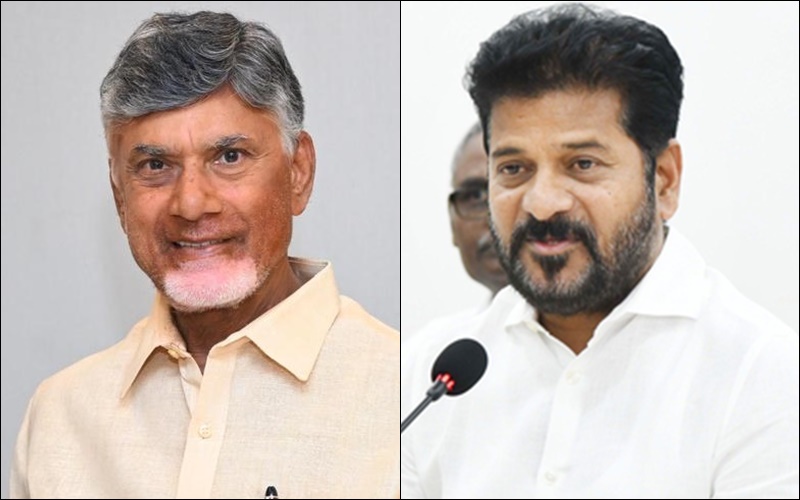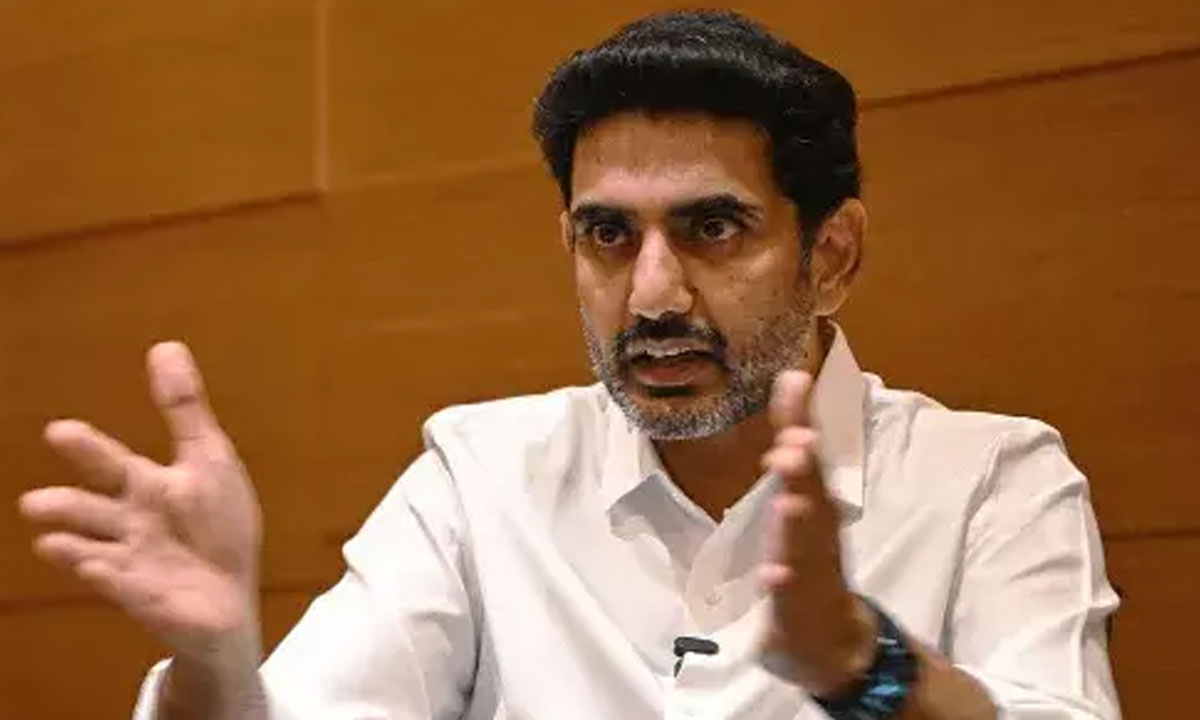The first-ever meeting between A. Revanth Reddy and N. Chandrababu Naidu as chief ministers of Telangana and Andhra Pradesh on July 6 has generated excitement in both the Telugu-speaking states, raising hopes of a solution to post-bifurcation issues.
With CM Revanth Reddy accepting the meeting proposal of his counterpart and inviting CM Naidu for a tete-a-tete in Hyderabad, the decks are cleared for the first meeting between the two leaders.
It was CM Naidu who took the initiative with a letter to his Telangana counterpart proposing a meeting to discuss matters of mutual interest between the two states.
CM Naidu, who was sworn in as the chief minister for a fourth time on June 12, wrote that he looks forward to working closely with him to resolve post-bifurcation issues, enhance cooperation, and facilitate progress in both the Telugu-speaking states.
“As Chief Ministers of Telugu-speaking states, it is incumbent upon us to foster close collaboration to ensure sustained progress and prosperity for both Andhra Pradesh and Telangana. Our shared commitment to cooperative development is crucial to realise our mutual goals of growth and well-being,” wrote Naidu, who served as chief minister of undivided Andhra Pradesh for two terms between 1995 to 2004.
The TDP chief, who became the first chief minister of bifurcated Andhra Pradesh in 2014, noted that it has been 10 years since the bifurcation of erstwhile Andhra Pradesh.
“There have been multiple discussions concerning issues arising from the Reorganisation Act, which holds significant implications for the welfare and advancement of our states. It is imperative that we address these issues amicably with utmost diligence and resolve. In light of this, I propose that we meet at your place on 6th July, Saturday afternoon,” reads the letter.
Revanth Reddy, in his reply, agreed that it was imperative to resolve all pending issues of the Bifurcation Act. “An in-person meeting is necessary to help us build a strong foundation for mutual cooperation, exchange of ideas and enable us to better serve our respective people,” he said.
The past association of the two leaders makes this meeting different from the attempts made during the last 10 years to resolve the issues under the Andhra Pradesh Reorganisation Act, 2014.
Revanth Reddy had worked in the Telugu Desam Party (TDP) as MLA under Chandrababu Naidu in united Andhra Pradesh and also later in Telangana.
Though Revanth charted his own course by joining the Congress party in 2017, the past equation between the two leaders has generated excitement around their upcoming meeting.
Days after taking over as Chief Minister of Andhra Pradesh following TDP-led NDA’s landslide victory, Naidu sought a meeting with Revanth Reddy to discuss the issues of mutual interest. CM Revanth Reddy’s prompt response and his invite to CM Naidu for the face-to-face meeting in Hyderabad have raised hopes.
When Naidu served as the first Chief Minister of bifurcated Andhra Pradesh between 2014 and 2019, K. Chandrasekhar Rao (KCR) was his counterpart in Telangana. Though the two leaders were also colleagues in TDP in the past and had an electoral understanding in the 2009 elections, they were not on good terms as KCR and his party TRS (now BRS) always perceived TDP as an anti-Telangana party.
The cash-for-vote scam of 2015 had created further distrust as KCR had accused Naidu of plotting to topple his government. Revanth Reddy, who was then considered close to Naidu, was caught by the Anti-Corruption Bureau (ACB) while allegedly trying to buy the vote of nominated MLA Stephenson in favour of the TDP candidate Vem Narender Reddy in the MLC elections.
Revanth Reddy, the then TDP MLA, was even sent to jail in the bribery case. The episode and subsequent development forced CM Naidu to shift base to Vijayawada and start developing Amaravati as Andhra Pradesh capital though Hyderabad was declared as common capital for 10 years under Andhra Pradesh Reorganisation Act.
Though KCR attended the foundation stone laying ceremony of Amaravati and met CM Naidu on a couple of occasions, they could not make headway in resolving inter-state issues, including the division of assets.
The relations strained further when TDP fought the 2018 Assembly elections in Telangana in alliance with the Congress and other parties. However, KCR-led TRS retained power with a thumping majority.
A few months later when Y. S. Jagan Mohan Reddy-led YSR Congress Party wrested power from TDP in Andhra Pradesh, TRS hailed the change then. There was bonhomie when Jagan Mohan Reddy as the Chief Minister-designate came to Hyderabad for the first meeting with KCR and invited him for the swearing-in ceremony.
The friendliness between Jagan and KCR came as a whiff of fresh air as the two neighbours agreed to work together to amicably resolve the inter-state disputes.
The two leaders had a few meetings, including the one when Jagan attended the inauguration of the Kaleshwaram Project. However, this bonhomie did not last long.
Political analysts say the common enemy (Naidu) more than anything else had brought Jagan and KCR together. This was despite the fact that Jagan had opposed bifurcation and even staged a sit-in in Delhi.
The two states remained embroiled in a row over the sharing of Godavari and Krishna waters. Both aggressively pursued irrigation projects on the two rivers and accused each other of violating past agreements and the Andhra Pradesh Reorganisation Act.
A tense situation was created between police forces of the two states on November 30, last year at Nagarjuna Sagar Dam across the Krishna River after Andhra Pradesh officials forcibly released water for their state. The Centre had intervened to deploy the Central Reserve Police Force (CRPF) and handed over control of the dam to the Krishna River Water Management Board (KRMB).
Many issues remained unresolved under the A.P. State Reorganisation Act 2014. Several meetings of the two states called by the Centre failed to resolve them.
These include the division of assets belonging to 23 corporations mentioned in the 9th schedule of the Reorganisation Act. Road Transport Corporation and State Finance Corporation are among the key bodies.
The two states also differ on the division of assets of 30 institutions mentioned in the 10th schedule of the Act. These include Raj Bhavan, High Court and Lok Ayukta.
Andhra Pradesh has been demanding its share in land parcels, buildings and bank reserves of common institutions located in Hyderabad in the ratio of 52:48 between Andhra Pradesh and Telangana in proportion to their population.
Andhra Pradesh also demanded a share in Singareni Collieries Company Limited, a public sector undertaking but Telangana has rejected the demand.
There are also disputes relating to commercial tax arrears, power arrears and the Labour Welfare Fund.
Andhra Pradesh says Telangana is yet to clear the power dues to the tune of Rs 5,000 crore.
On June 2, which marked the 10th formation day of Telangana state, Hyderabad ceased to be the joint capital of both states.
A few days before this, CM Revanth Reddy had asked officials to take over buildings allotted to Andhra Pradesh in Hyderabad for 10 years.
He had asked the officials concerned to prepare a report on all the pending issues related to the division of assets and payment of the debts between the two states after the bifurcation of Andhra Pradesh.










